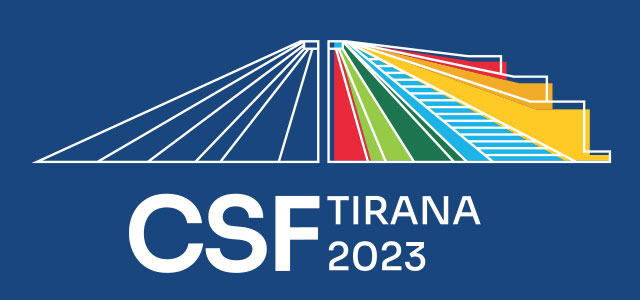Advancing Inclusive Regional Mobility in the Western Balkans

Regional Mobility in the Western Balkans has had volatile development, following the political and socio-economic processes in the past thirty years. Shifting from almost no mobility within the region, to increased mobility, interconnection, and infrastructure, accelerated by the European Integration process and the Berlin Process as well, the region needs to improve inclusivity within the matter.
This piece results from the research and consultation process of the “Advancing Inclusive Regional Mobility and Catalyzing Mobility- Driven Innovation and Knowledge Transfer in Western Balkans” led by the Center Science and Innovation for Development as part of the Civil Society and Think Tank Forum 2023 of the Berlin Process.
From Uncharted Territory to Increased Regional Mobility
At the Thessaloniki Summit in 2003, the European Union (EU) recognized regional mobility as a pivotal tool for reconciliation and preparation for the Western Balkans’ (WB6) EU integration. The EU has since spearheaded initiatives enhancing this mobility, especially through educational and youth programs. The launch of the Western Balkan Window under the Youth in Action programme in 2008, followed by increased funding and the integration of the Western Balkans into the Erasmus+ programme, have significantly boosted youth mobility. Additionally, platforms like Salto Youth Resource Center have further promoted regional and EU-Western Balkans mobility.
The Berlin Process, initiated in 2014, broadened the scope of regional mobility beyond primarily youth and NGOs. This high-level cooperation forum includes the Western Balkan Six (WB6), EU institutions, international financial entities, and stakeholders from civil society, youth, and businesses. Other global donors and entities have also championed regional mobility, predominantly focusing on civil society and academia.
Local Ownership: Embracing Regional Mobility
The Berlin Process catalyzed a shift in regional mobility, broadening its scope beyond youth and NGOs to engage a wider audience. This transformation was highlighted by the formation of flagship entities such as the Western Balkans Fund (WBF) and the Regional Youth Cooperation Office (RYCO), both funded and operated by the WB6.
The WBF, operational since October 2017, launched MOVE Grants, endorsing a multi-sectoral approach to mobility. Survey results showcased a significant demand, with 80% of 561 respondents showing interest.
RYCO, launched at the 2016 Paris Summit, has championed youth mobility across the WB6, fostering projects on intercultural dialogue and social inclusion. By 2022, they engaged 8,000 youths through programs and held the EU-WB Youth Forum in Berlin.
Additionally, various platforms have been pivotal in promoting mobility and regional unity:
- Balkan Civil Society Development Network (BCSDN) supports regional grants and networking for Civil Society Organizations.
- Marie Curie Alumni Association's Western Balkans Chapter connects MSCA fellows and alumni.
- Western Balkans Alumni Association (WBAA) represents Erasmus+ alumni, emphasizing mobility and development.
- Erasmus Student Network (ESN) operates branches across WB6, bolstering regional ties.
- Young European Ambassadors (YEA), formed in 2020, bridges WB6 youth activists, advocating for regional harmony and EU opportunities.
- WeBalkans.eu offers insights into EU-WB6 relations.
- Southeast European Digital Rights Network encourages online knowledge sharing and digital rights in the Western Balkans.
These efforts collectively bolster the region's mobility and collaboration prospects.
Challenges Towards Inclusive Regional Mobility
The WB6 aspires to enhance regional mobility but faces multifaceted challenges. Economic disparities lead to uneven mobility benefits, causing some regions to feel sidelined. The COVID-19 pandemic emphasized a digital divide, hindering access to information and impeding mobility-based social inclusion projects.
Infrastructure issues, both digital and physical, curtail seamless mobility, especially for remote regions, limiting participation in regional activities. The brain drain effect, characterized by the emigration of talent, drains local human capital. Deep-rooted ethnic tensions and varying access to services like education and healthcare highlight the need for a mobility strategy that ensures inclusivity. Gender disparities further underscore the urgency for balanced mobility opportunities for all.
Externally supported mobility initiatives often lack local ownership, making transformative change challenging. Over-reliance on top-down strategies risks sidelining grassroots movements and diminishing local agency.
To optimize regional mobility, the Western Balkans needs a coordinated approach emphasizing inclusivity, digital connectivity, local opportunity creation, and policies that prioritize underrepresented communities.
Towards a more inclusive regional mobility
Mobility in the WB6 has obviously increased since early 2000s. Nevertheless, capitalizing on the best practices so far, it is crucial to shift to a more inclusive paradigm and aiming to leave no citizen behind in the region, when it comes to having the right to experience such mobility. To enhance inclusive regional mobility, a comprehensive approach is required. This includes addressing economic disparities, investing in education and skill development, promoting social cohesion, ensuring minority rights, and engaging civil society in decision-making processes. By focusing on these areas, the WB6 can work towards a more equitable and inclusive approach to mobility and regional integration.
Enhancing Inclusive Regional Mobility in the Western Balkans through Digitalization
For inclusive mobility in the Western Balkans, a digitalization strategy is essential. Governments must invest in digital infrastructure, ensuring universal, affordable high-speed internet access. This should pair with digital education initiatives, fostering literacy and competencies, and efforts to protect digital rights and enhance cyber resilience. Such steps not only improve regional connectivity but also tap into digital and virtual mobility's potential, mirroring the EU's digital goals for the Western Balkans and offering solutions like the Erasmus+ Virtual Exchange.
Enhancing Inclusive Regional Mobility in the Western Balkans through Equal Opportunities and Decentralized Initiatives
To achieve more inclusive mobility in the Western Balkans, a multifaceted approach that prioritizes gender equality and serves marginalized communities is essential. Governments need to ramp up efforts to address gender-based inequalities in all facets of life, ensuring equal access to educational and employment opportunities that impact mobility. Regional organizations, alongside international donors, should develop targeted initiatives to provide information and resources to marginalized groups, including disadvantaged youth and people with disabilities. For the latter, accessibility-centered programs inspired by established best practices, such as the "Beyond Disabilities–European Mobility for All" guide, should be a priority. To counter the urban-centric nature of most regional activities, regional mobility programmes should also consider decentralizing their initiatives and focusing in remote and rural areas.
